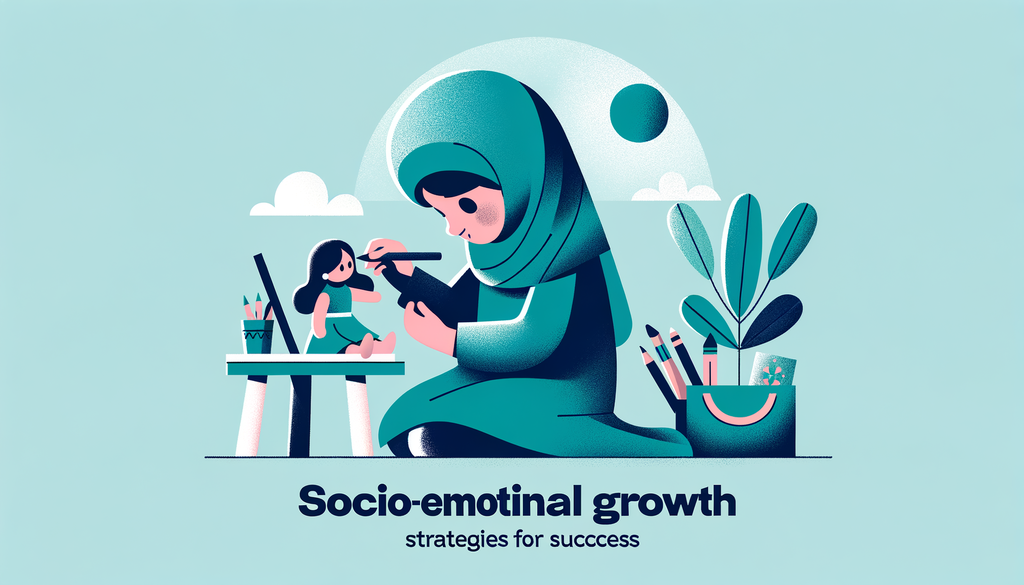Socio-Emotional Growth for 2e Children: Strategies for Success

Raising a child identified as twice-exceptional (2e)—being gifted and talented and simultaneously facing special needs or learning challenges—comes with unique opportunities and challenges. Often, these children exhibit outstanding talents and intellectual prowess alongside various differences or discrepancies, such as learning disabilities, attention challenges, or dyslexia. Effectively supporting the socio-emotional growth of these extraordinary children is critical. In this post, we’ll dive into actionable strategies to help you boost your child’s socio-emotional development while valuing their unique talents and needs.
Understanding twice-exceptionality
Supporting the socio-emotional growth of 2e children begins with understanding twice-exceptionality itself. Your child may show remarkable talent in some areas—such as mathematics, the arts, or literature—yet struggle in others. These discrepancies could be the result of learning disabilities, attention deficit, or other mental or physical health issues. For a more comprehensive explanation of twice-exceptionality, consider reading our guide to Understanding Twice-Exceptionality: A Parent’s Guide.
Connecting with your child
Establishing a strong emotional connection with your child is fundamental. This bond helps your child feel safe and loved, fostering security and trust. It also allows you to better understand your child’s unique feelings, views, and experiences. Encouraging open communication can help you cater to their needs more effectively, and allows them to share their thoughts, frustrations, and triumphs openly. This open dialogue is a life skill that can enhance their relationships and equip them to navigate social situations more effectively.
Nurturing socio-emotional skills
Children aren’t born with social-emotional skills. They learn and develop these skills through experiences and relationships—most importantly, through their interactions with their parents. You can bolster these abilities by teaching your child to identify, understand, and manage their feelings—an ability often referred to as Emotional Intelligence. Our posts on The Role of Play Therapy in Child Development and Building Resilience in Children with Special Needs offer more targeted techniques to nurture these critical skills.
Encouraging peer interactions
Social interactions with peers offer a practical platform to cultivate and test socio-emotional skills. Encourage your child to engage with peers through playdates, community activities, and educational settings. Our post about Peer Connections: Helping Your Child Build Friendships provides more strategies to promote successful peer relationships.
Seeking professional help and support
Engaging professionals such as therapists or educators who specialize in 2e children can be beneficial. They can provide tailored strategies to aid your child’s socio-emotional growth, addressing both their giftedness and specific learning challenges. Moreover, joining a support group can offer respite, advice and shared experiences, fostering a sense of community and shared understanding.
Nurturing self-esteem and self-confidence
Often, 2e children can experience frustration, depression, or low self-esteem stemming from their struggles or feeling different from their peers. It’s critical to nurturing their self-esteem and self-confidence. Commend their efforts and progress—not just their achievements, and ensure them that setbacks are just part of the learning process. Allowing your child to pursue their interests and strengths can also boost their confidence and sense of identity. our post on High Flyers: Nurturing Leadership in Gifted Children suggests ways to cultivate positive self-perception.
Puberty, with its accompanying emotional shifts and changes, can be especially challenging for 2e children. Preparing your child and offering understanding and support during these periods can alleviate their anxiety and enhance their coping abilities.
In conclusion, while it’s undeniable that the journey of raising a 2e child entails unique challenges and demands, it’s also marked by notable joys, enlightening insights, and rewarding growth. Your investment in understanding your child, nurturing their growth, and advocating for their needs can make an immense difference in shaping their future.
For more insights into raising a 2e child from a personal perspective, feel free to visit our post, A Mother’s Journey: Raising a 2e Child.
Remember, every child is unique, and as such, requires a unique approach. As you strive to support your child, take heart in the fact that your love, patience, and dedication are the most potent tools at your disposal.